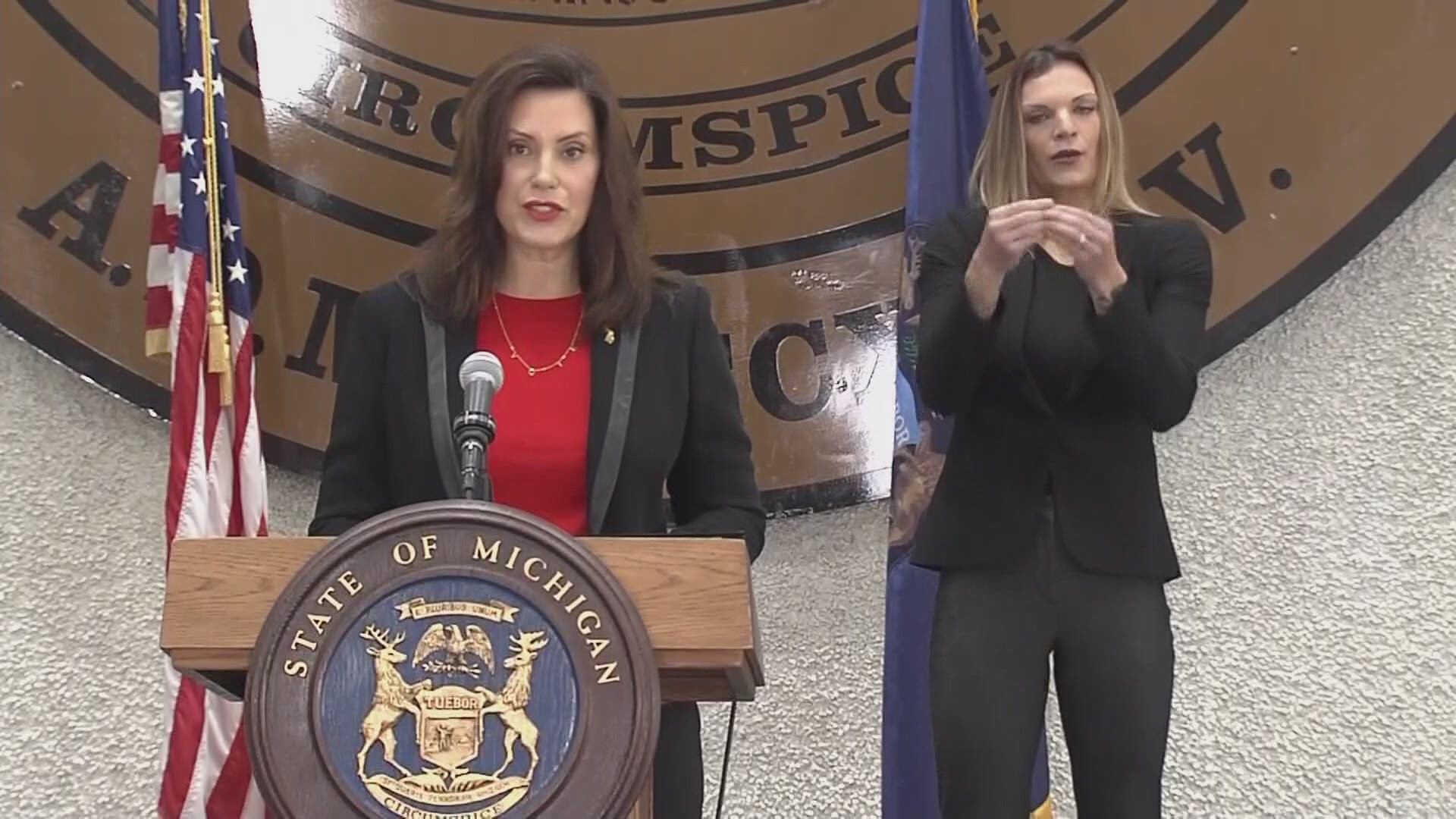GRAND RAPIDS, Mich. — April brings big changes to Michigan’s criminal justice system, as new expungement laws take effect.
Last fall, Governor Gretchen Whitmer signed Project Clean Slate into effect. Now, finally, the laws are expected to impact as many as one million people, according to Michigan Attorney General Dana Nessel.
The sweeping changes make it easier for people who have committed certain felonies and misdemeanors to have their records expunged. A significant number of those crimes are traffic and marijuana related.
Nessel has described the previous expungement system as time-consuming and confusing, saying “too many people are cut off from employment, education, and stable housing as a result of their prior convictions.”
She also recognized the need for technology to be modernized, in order to “give individuals the second chance they deserve.”
Last week her office announced it has created a new webpage to help people understand the new laws and apply for expungement.
"The new law brings about overdue change for so many residents who would otherwise have to carry around the burden of a public criminal record well past the point of having paid their debt to society," Nessel said in an April 12 press release. "Our new expungement webpage is a resource for residents to assess eligibility and better understand the process for applying to have their records expunged."
The site provides resources to explain the details of the law, clarify eligibility, and provide checklists for necessary application steps and materials. This will be extremely useful, as most people do not need an attorney to represent them to expunge criminal offenses.
Meanwhile, the state has announced it is making a $4 million investment in the Clean Slate Pilot program, from the Michigan Department of Labor and Economic Opportunity (LEO), to help Michigan residents clear their records.
According to a press release issued on April 14th, The Clean Slate Pilot Program funding will be awarded to all 16 Michigan Works! Agencies throughout the state with each of the agencies providing localized efforts.
"Before this legislation, just under 7% of eligible individuals pursued an expungement," said Shamar Herron, Executive Director, Michigan Works! Southeast.
"We know how important equitable access to expungements are for job seekers. According to a University of Michigan Study, after having a record expunged, job seekers obtained employment at an increase of 11% and their income rose by 25% in two years. Michigan Works! Agencies and the Clean Slate Pilot program will help job seekers overcome many barriers and guide them on a path to success, while providing support to area businesses by increasing the number of available workers, adding to the talent pool."
To be eligible for assistance through the Clean Slate Pilot Program, the applicant’s criminal record must have:
• No more than one felony conviction.
• No more than two misdemeanor convictions.
• No traffic offenses, such as operating while intoxicated.
• Been at least five years since the date of conviction, release from incarceration, or discharge of probation or parole.
Effective, beginning April 11, 2021, the eligibility requirements for expungement include the following:
• A person convicted of 1 or more criminal offenses including felonies and misdemeanors, but not more than a total of 3 felony offenses, may file an application with the convicting court to expunge all of his or her convictions, with the following exceptions:
- A person cannot seek to expunge more than 2 "assaultive crime" convictions during his or her lifetime, or
- A person cannot seek to expunge more than 1 felony conviction for the same offense if it is punishable by more than 10 years' incarceration.
• Pursuant to MCL 780.621b(1), "more than 1 felony offense or more than 1 misdemeanor offense must be treated as a single felony or misdemeanor conviction if the felony or misdemeanor convictions were contemporaneous such that all of the felony or misdemeanor offenses occurred within 24 hours and arose from the same transaction, provided that none of those felony or misdemeanor offenses constitute any of the following:
- An assaultive crime defined by reference to other statutes.
- A crime involving the use of a dangerous weapon
- A crime with a maximum penalty of 10 or more years' imprisonment
- An out-of-state conviction for which the underlying conduct would be an assaultive crime in Michigan.
Excluded offenses can be found here.
The Clean Slate legislation was a bi-partisan effort. Those behind it say, giving those, that deserve it, a second chance will help make the entire state stronger.
►Make it easy to keep up to date with more stories like this. Download the 13 ON YOUR SIDE app now.
Have a news tip? Email news@13onyourside.com, visit our Facebook page or Twitter. Subscribe to our YouTube channel.


